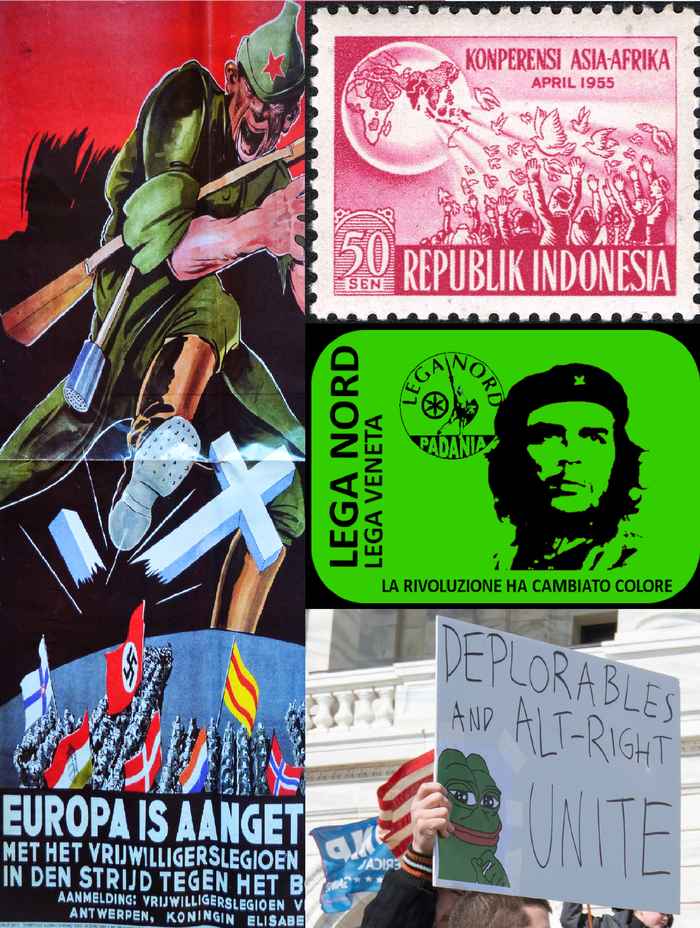Masterclass with Glenda Sluga and Benjamin Teitelbaum on Antiliberal internationalism
- Date
- 12 January 2023
- Time
- 16:00 -18:00
If you would like to participate, please send a brief description (150-200 words) of your research project and its connection to the conference theme (below) to Matthijs Lok (m.m.lok@uva.nl). Deadline is 1 December 2022.

Conference Theme
Since the turn of the millennium, all over the globe new forms of international collaboration have surfaced that explicitly position themselves against the liberal international order established after the fall of the Berlin Wall. Examples of this new antiliberal internationalism are the Congress of European ‘conservative nationalists’ held in Rome (February 2020), the Visegrád Group meetings which offer a platform for self-proclaimed ‘illiberal’ government leaders from Central Europe, the nebulous network of far-right ‘traditionalist’ anti-liberal intellectuals including the likes of Alexandr Dugin and Steve Bannon, the leftist anti-neoliberal and anti-austerity Greek-Spanish collaboration between Syriza and Podemos and its grassroots constituencies, cross-border far-right protest movements such as Pegida, the Russian-Chinese strategic alliance, or the ‘Buddhist international’ in South-Eastern Asia. In scholarship, these and other contemporary examples of antiliberalism across national boundaries are frequently explained as consequences of the recent cultural backlash, tendencies of authoritarianism and the populist zeitgeist against the backdrop of globalising societies. However, in hindsight, antiliberal internationalism is not necessarily a timely or new phenomenon – nor can current manifestations of it be understood or explained detached from historical precursors.
Research questions
At this conference, specialists from different disciplines, periods, and regions aim to uncover the longer twentieth-century trajectories and genealogies of antiliberal internationalism: sentiments, outlooks, strategies, and ideologies. To what extent do contemporary antiliberal internationalisms build on older patterns, traditions, ideas or recurring antiliberal tropes? How might historical trajectories and genealogies of antiliberalism in internationalism be qualified and conceptualized? How has antiliberal critique shaped and informed internationalism? Can we observe (non)ideological variations of antiliberalism in internationalism across time and space? And to what extent do these manifestations of antiliberalism interrelate, overlap, or coincide? Do antiliberal repertoires and critiques travel within the sphere of the international? What historical and contingent circumstances help explain the particular nature of antiliberal tropes in internationalism over time?
The point of departure of the conference is that ‘liberalism’ and ‘anti-liberalism’ are not fixed entities. ‘(Anti)Liberalism’ was and is as much defined by its enemies as by its advocates. International actors can position themselves as both liberal and antiliberal in different contexts. Moreover, antiliberal internationalists often do not reject liberalism in its entirety; while they repudiate certain aspects (ranging from liberal support for open markets or global elites and institutions), other aspects (such as modern technology) are embraced. Historical actors borrowed concepts from varying ideological traditions, prompting the question of whether the ideological left-right dichotomy is helpful in understanding antiliberal internationalism in the first place, and if not, whether more yielding analytical categories are available to historians. The conference will result in a publication that aims to explore the manifestations and articulations of antiliberalism as a lens to study twentieth-century internationalism, and thus contribute in new ways to the historical and political study of the international.
Glenda Sluga
Glenda Sluga is Professor of International History and Capitalism at the European University Institute (EUI) and the university of Sidney. In 2020, she was awarded a European Research Council Advanced Grant, overseeing a five-year research program on ‘Twentieth Century International Economic Thinking and the complex history of globalization.’ In 2021, Princeton University Press published her latest book, The Invention of International Order: Remaking Europe after Napoleon. She is one of the foremost historians of the international order in the 19th and 20th century.
Benjamin R. Teitelbaum
Benjamin R. Teitelbaum is Associate Professor of Ethnomusicology and International Affairs at the University of Colorado, Boulder. Most of his research focuses on ideology and expressive culture in contemporary radical nationalist, populist, and neofascist movements. He is author of two books: Lions of the North: Sounds of the New Nordic Radical Nationalism (Oxford University Press, 2017) and War for Eternity: The Return of Traditionalism and the Rise of the Populist Right [HarperCollins, Penguin Press, 2020].